
Onsite visit Amsterdam, Netherlands
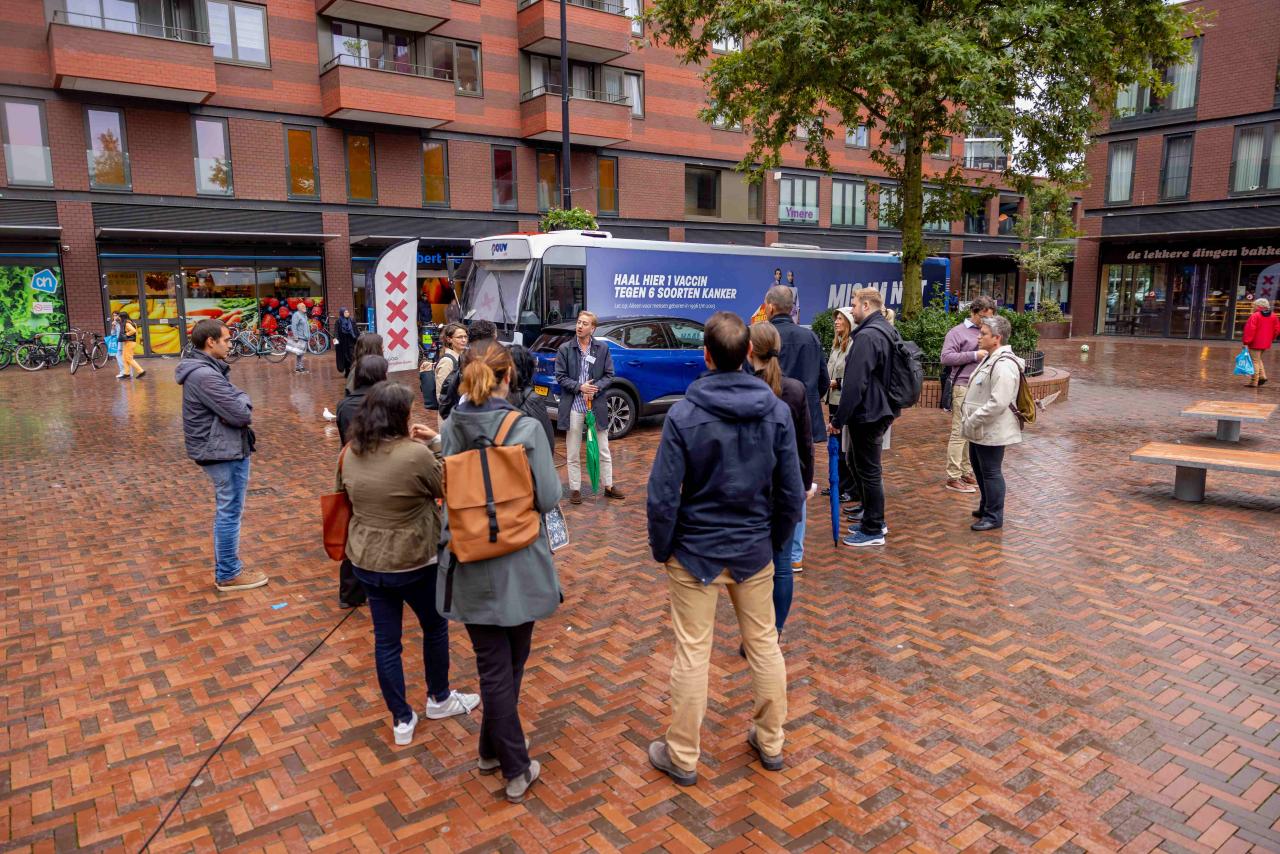
Introduction
The fourth onsite visit for the project “Overcoming Obstacles to Vaccination” took place in Amsterdam, Netherlands, from 20 to 22 September 2023. The visit focused on the use of mobile vaccination units (MV units), an exemplary practice to increase COVID-19 vaccination uptake using either buses or temporary pop-up vaccination locations. The initiative targeted people living in neighbourhoods with relatively low vaccination uptake and target groups such as those with low social-economic status, prisoners, and illiterate people.
The Dutch National Institute of Public Health and Environment (Rijksintituut voor volksgezondheid en milieu (RIVM)) welcomed 26 participants from 15 EU Member States. Participants represented national health institutions, health ministries, and national immunisation offices.
The goal of this visit was to:
- gather insights into the Dutch MV units and learn from their success
- foster mutual learning by providing a space for the exchange of knowledge and experiences
- develop ideas on how health professionals from Member States can transfer the practice to their countries
During the visit, the Dutch National Institute of Public Health and Environment (Rijksinstituut voor volksgezondheid en milieu (RIVM)), the Municipal Health Service Amsterdam (GGD Amsterdam) and the Healthcare Insurance Association (GGD GHOR Nederland) were awarded a certificate of outstanding practice from the European Health and Digital Executive Agency (HaDEA).
Mobile vaccination units to increase COVID-19 vaccination uptake
Aim
During the first COVID-19 vaccination campaign, vaccination uptake figures showed considerable differences over time between regions and neighbourhoods in the Netherlands. Some of these differences seemed to be related to accessibility and knowledge barriers in the neighbourhoods and regions affected by lower take-up rates.
To overcome these barriers, municipal health services deployed MV units in various neighbourhoods throughout the Netherlands during subsequent COVID-19 vaccination campaigns.
Various municipal health services (not only in Amsterdam) operated vaccination buses in several neighbourhoods to provide people with information about COVID-19 vaccines and offer vaccinations. These were offered on a drop-in basis, with no appointment needed. The vaccination bus was used to offer first and second vaccinations to all citizens in the neighbourhood who wanted to be vaccinated against COVID-19.
Aside from receiving a vaccination, residents in the targeted neighbourhoods received health information (often in different languages) as well as the opportunity to ask questions. Healthcare professionals, sometimes accompanied by trusted key figures in the neighbourhood, handed out leaflets and flyers, put up posters and engaged in personal conversations with individuals and groups. These actions aimed to limit barriers to vaccination by offering accessible vaccination services, culturally appropriate information, and dialogue – thereby fostering trust and increasing knowledge about vaccinations.
Actors involved and implementation
The Ministry of Health (Ministerie van Volksgezondheid, Welzijn en Sport) is responsible for assigning the vaccination programmes. The Ministry receives advice from the National Health Council (Gezondheidsraad), an independent scientific advisory body in the field of public health, including vaccination recommendations for certain target groups. The National Health Council board consists of a President and Vice President and has 100 members from all parts of the country and from various disciplines. Together they cover six areas of activity: healthcare, prevention, healthy nutrition, environmental health, healthy working conditions, as well as innovation and knowledge infrastructure.
The National Institute of Public Health and the Environment (Rijksinstituut voor Volksgezondheid en Millieu, RIVM) organises, conducts, and monitors vaccination programmes at the national level in cooperation with regional partners, municipal health services and non-governmental organisations (NGOs).
Based on insights into vaccination uptake and specific regional knowledge, the regional departments of the municipal health services determine the specific areas where interventions are necessary.
Resourcing
Vaccinations in the Netherlands are generally available free of charge at point of delivery for those belonging to the target groups. Those not belonging to a target group must pay out-of-pocket for both the vaccine and its administration, for example, parents asking for childhood vaccinations like chickenpox.
The MV units are funded by the Dutch Ministry of Health, Welfare and Sport. The buses were made available free of charge during the campaign. Regions were free to choose the frequency and duration of the buses' use and oversaw coordination and staffing.
Results
Preliminary results from the Amsterdam region suggest that, in a given neighbourhood, the average daily vaccination rate for the first dose of COVID-19 vaccine was 26% higher on days in when vaccine units were present than on days without a vaccination bus. This indicates that the introduction of vaccination units can increase vaccine uptake.
The success of this programme led to the use of MV units until September 2023 as part of the Human papillomavirus (HPV) vaccination programme for young adults (aged 19 to 26 years) in Amsterdam.
Outcome of the visit
As part of the visit, participants were provided with an overview of infectious disease control and vaccination programmes in the Netherlands as well as an introduction to the Dutch National Immunisation Programme. Several workshops provided an opportunity for participants to reflect on the Dutch health and immunisation system, with a particular focus on MV units as an exemplary practice.
The first workshop session aimed to foster in-depth analysis and facilitate mutual learning through group discussions. Participants identified key points to adapt from the Dutch experience, including:
- Establishing interconnecting registries at national level
- Building up a national immunisation register in order to track vaccination coverage
- Cooperating with local communities to design the right approach for each outreach
- Using active invitation approaches
- Including behavioural scientists in the project to find suitable, knowledge-based outreach methods, but also to scientifically analyse the outreach and acquire more information on the target group and how to approach it
Participants identified a number of strengths of the practice, including ease of access for locals and the flexibility of location and time in delivering vaccines. Connection with community leaders provides a channel of communication through which trust can be built with residents. The MV units offer an opportunity to communicate the importance of vaccinations directly to hard-to-reach groups. Promising opportunities identified included the use of buses for variety of tasks (i.e., other vaccines) as well as providing an important tool for gathering data that can be used for evidence-based decision-making.
An Impact Canvas, was used to guide participants in evaluating the potential transfer of this practice to their own local health system and infrastructure. Participants discussed essential aspects such as target groups, resources, key activities, key partners, communication channels, financial sustainability, and evaluation.
Key aspects of the Dutch MV units that could be adapted and transferred to other Member States include:
- Expanding target groups: tailoring the approach to target specific groups such as vulnerable migrants, nomad populations, homeless people or lower-income groups. Targeted campaigns would provide baseline data by target group for decision-makers
- Communication channels and outreach: supplementing existing communication outreach activities with channels and/or packages aimed at target groups and partners, for example, an increased online presence (i.e., social media) to support local outreach efforts to inform parents about HPV vaccinations and establishing channels for community leaders to interconnect with important stakeholders
- Vaccination locations: expanding vaccination locations to include vocational schools and sports centres to reach different target groups
- Evaluation: taking account of community perceptions of vaccination activities to help monitor outreach success and provide essential feedback to improve services.
Participants valued the opportunity to gain a new perspective, especially through visiting MV units on site. The most mentioned lesson taken away from the visit was the interdisciplinary team approach, which can be used to reach different groups of society that are somewhat sceptical and cannot be reached in the traditional way.
Find out more about the Dutch MV Units:
-
Key-note speaker Tjalling Leenstra, giving a presentation on vaccination programmes in the Netherlands. -
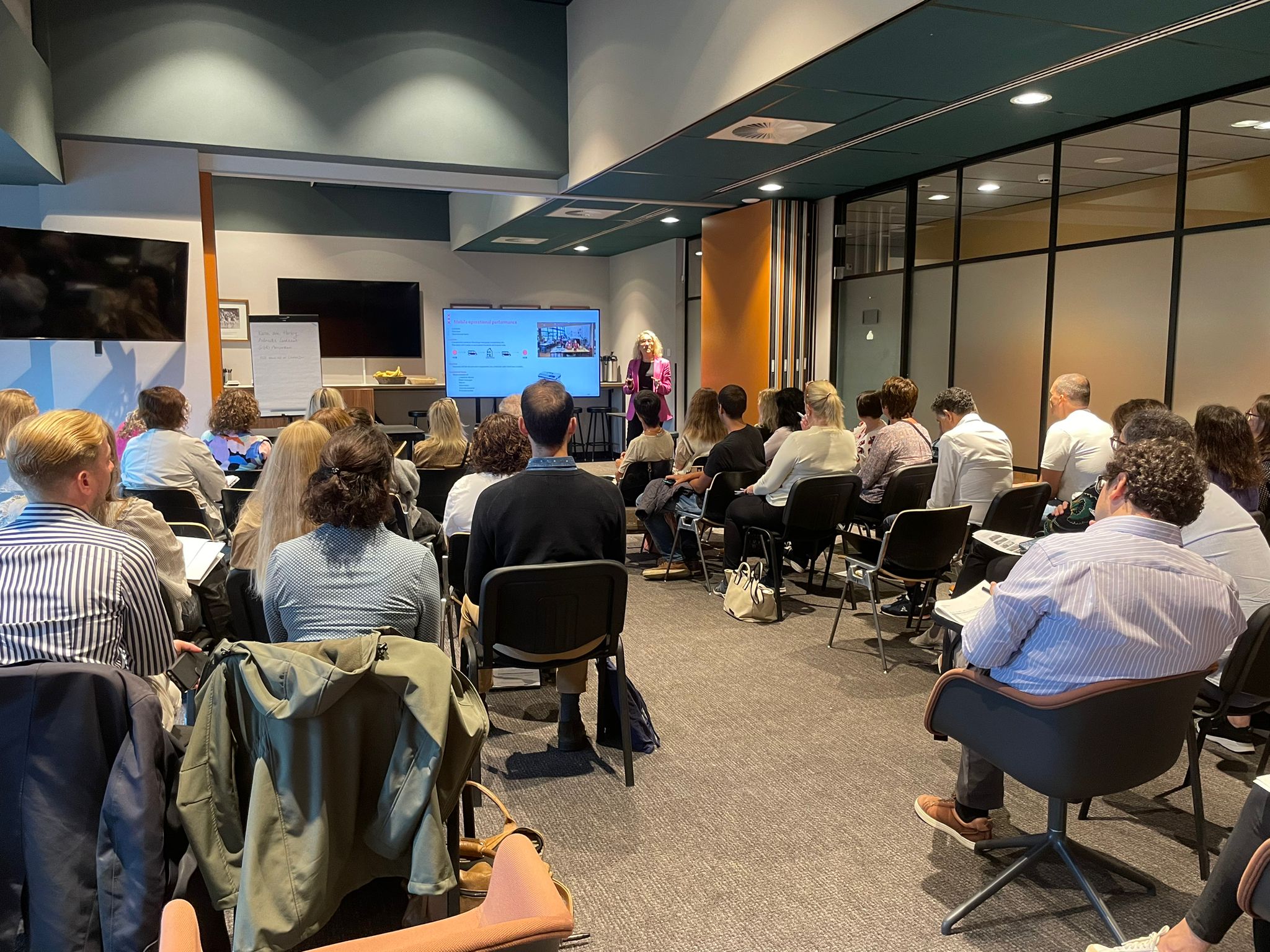
Presentation on the use of mobile vaccination units for hard-to-reach groups by a speaker during onsite visit. -
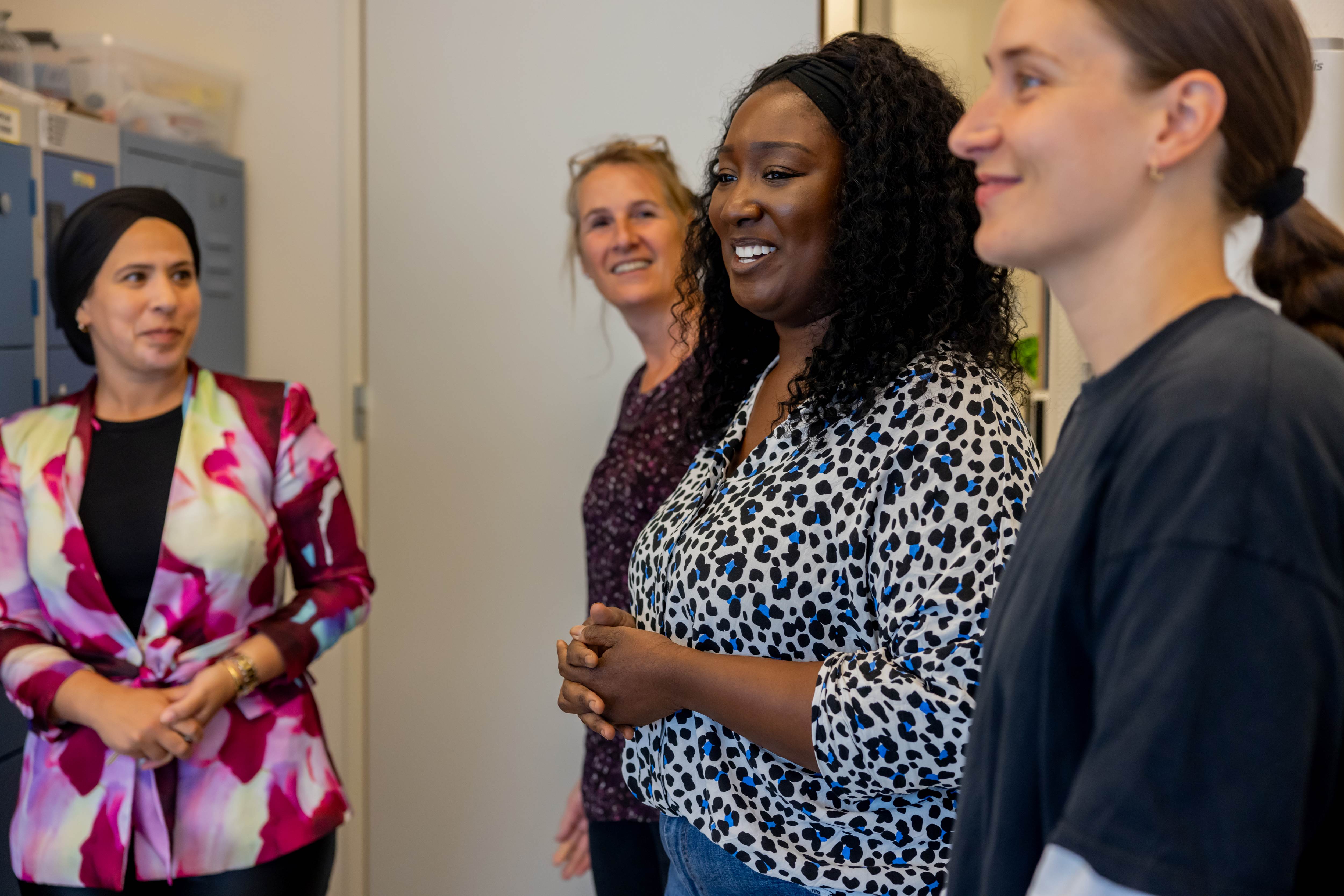
Delegates of the onsite's host organisation taking during a workshop. -
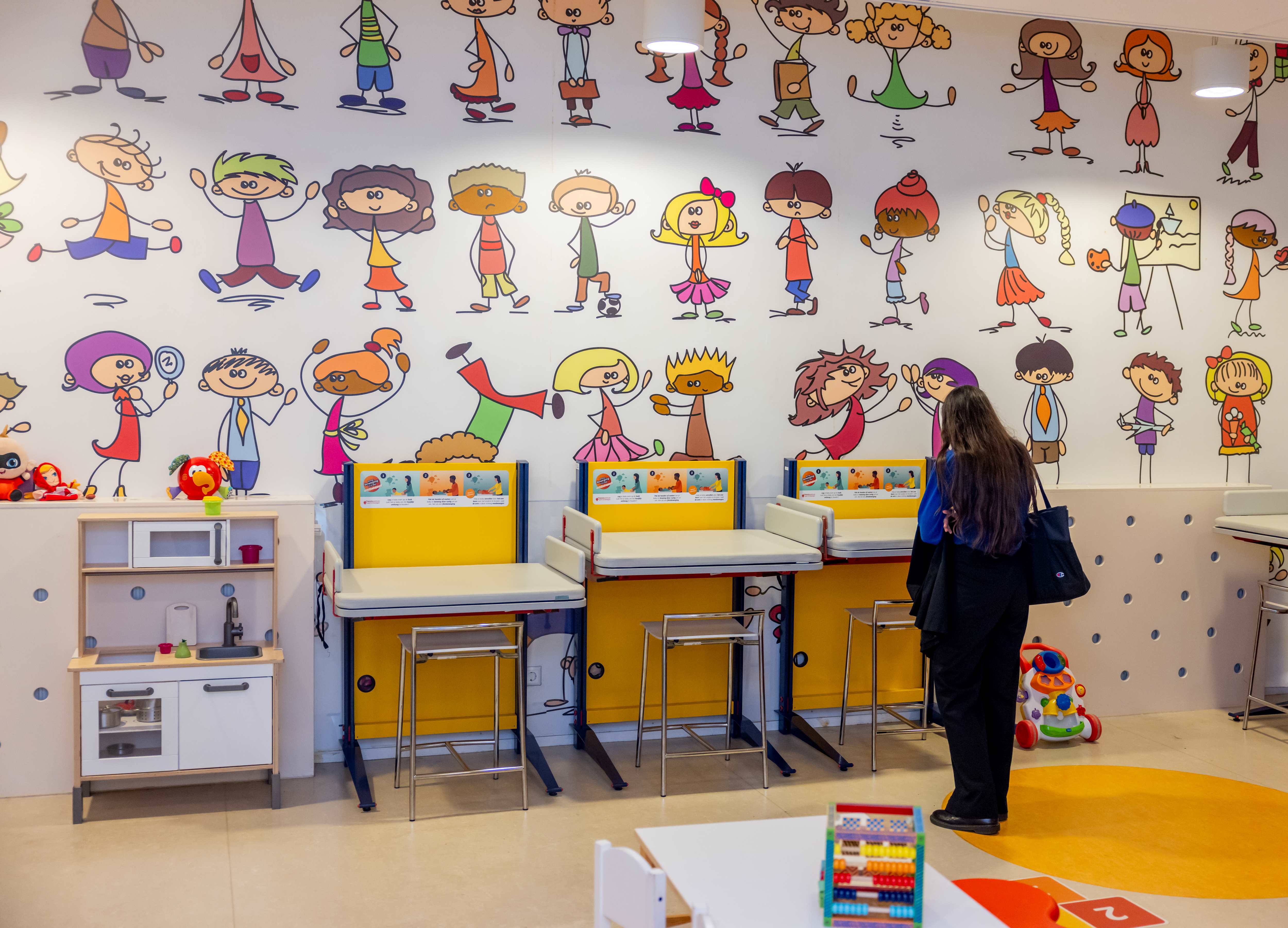
A participant discovering the facilities of a local Centre for Youth and Family during the onsite visit of the mobile units in Amsterdam. -
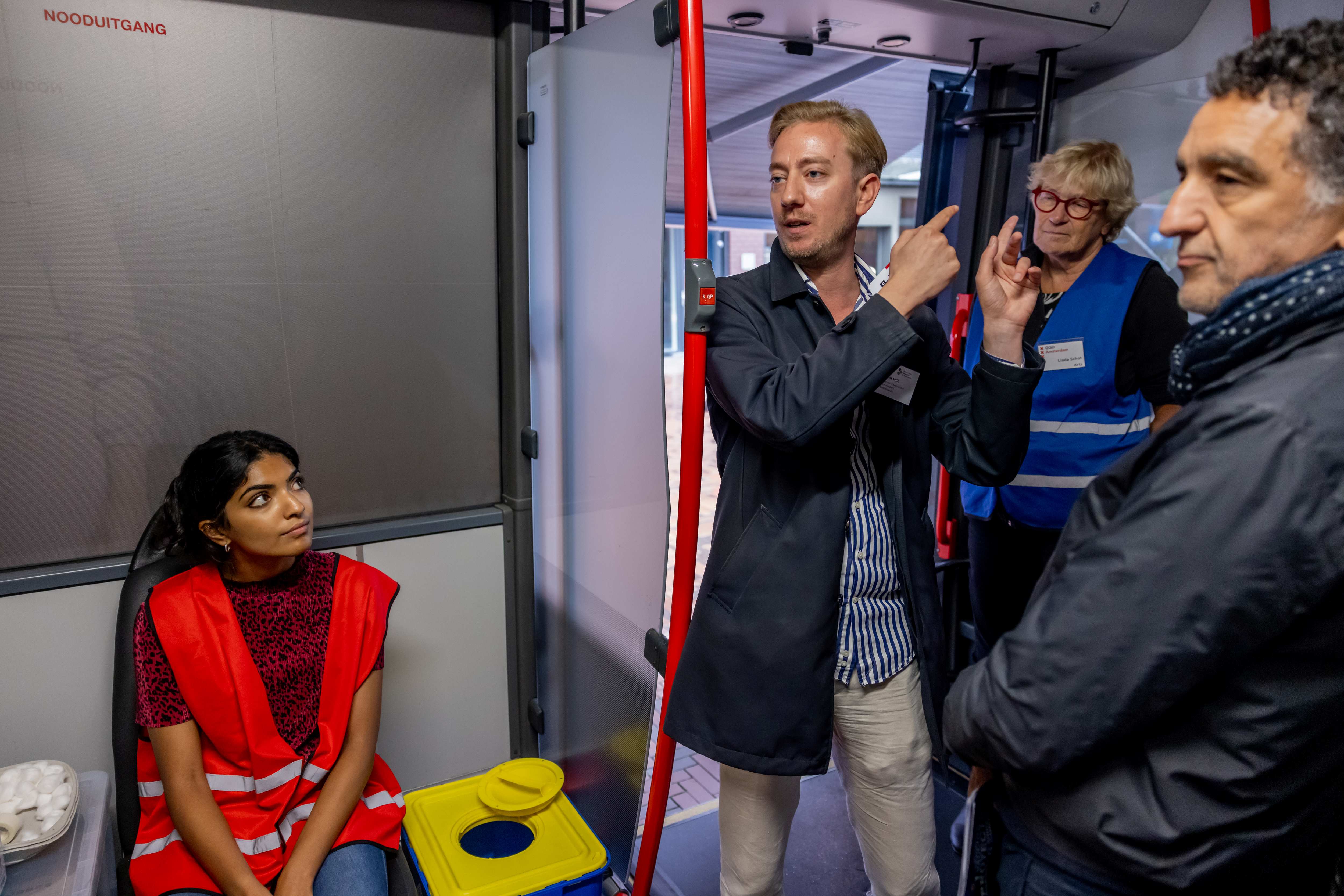
Speaker and delegates giving a presentation on how the mobile vaccination units are utilised. -
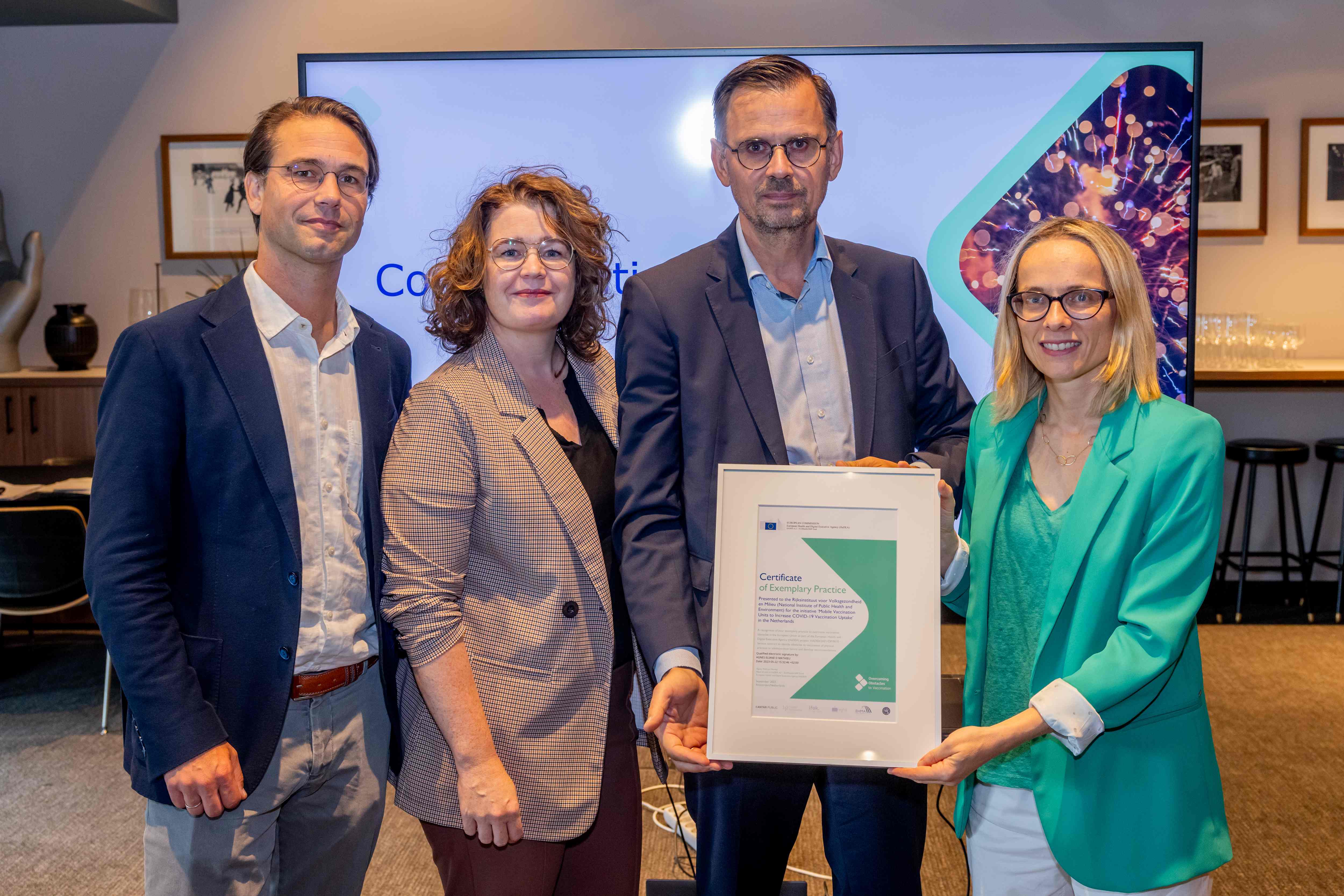
Award ceremony at the Amsterdam onsite visit. Four speakers showcasing a certificate. -
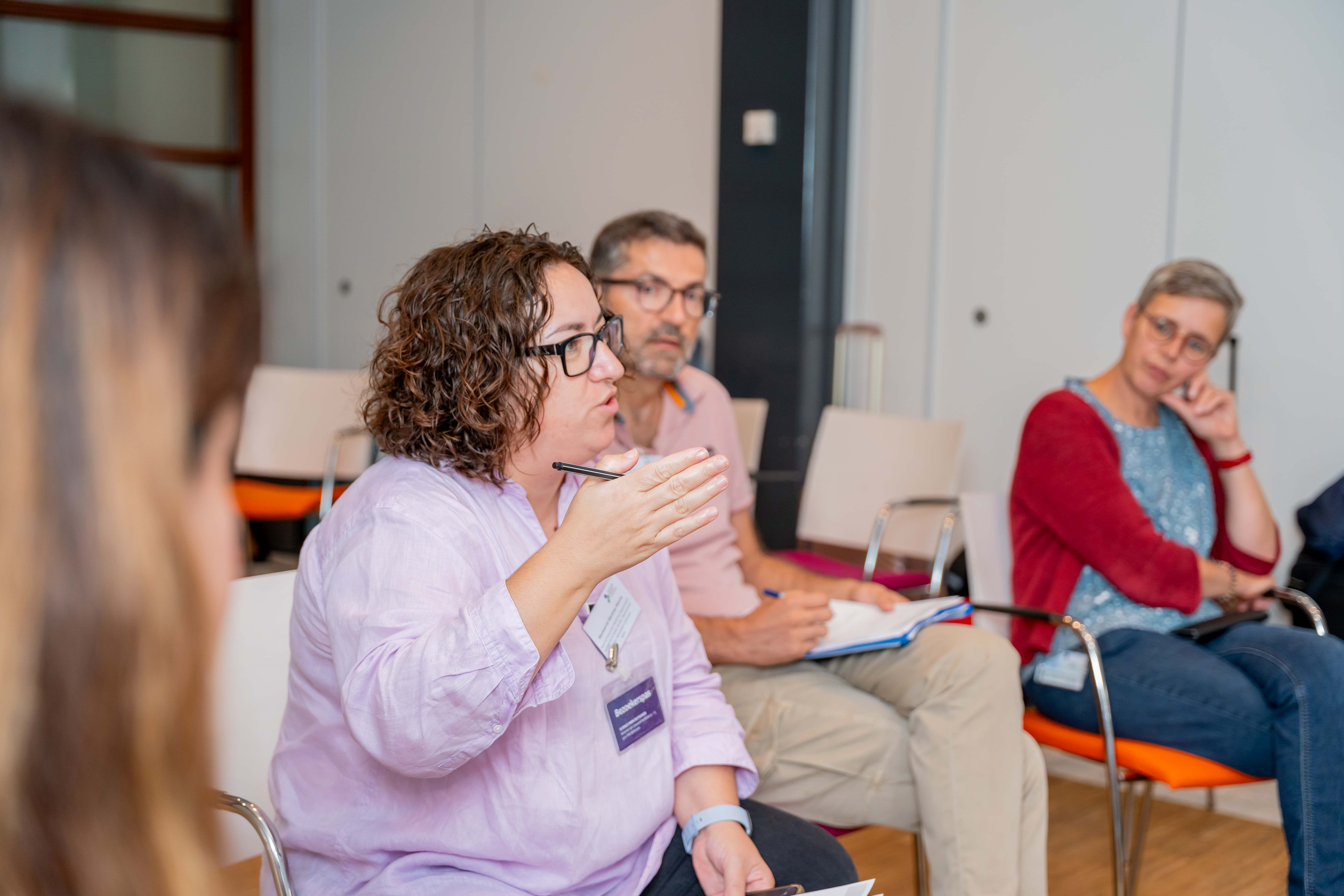
A participant talking during one of the presentations on the onsite visit in Amsterdam. -
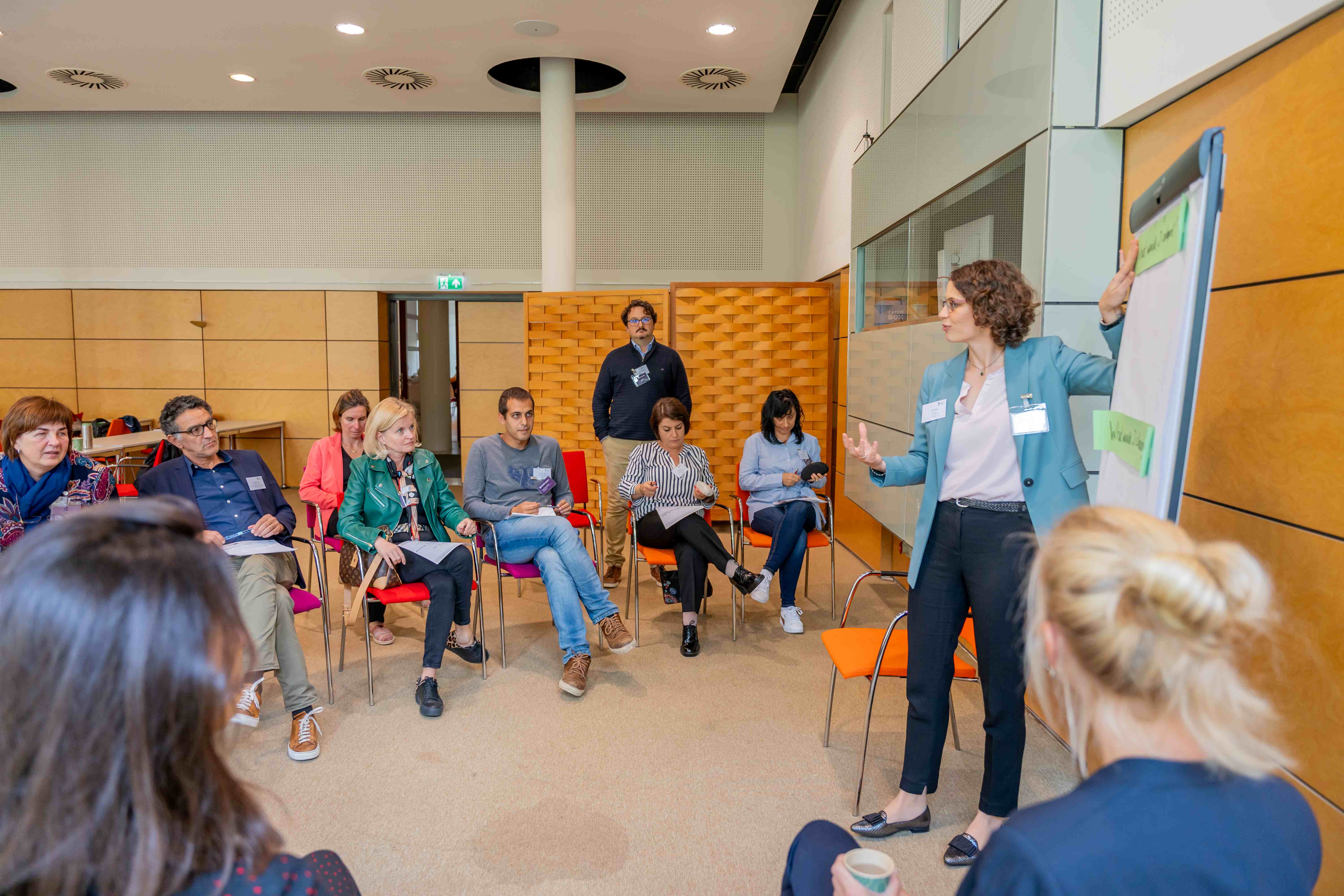
Julia Wirth talking during a workshop.
